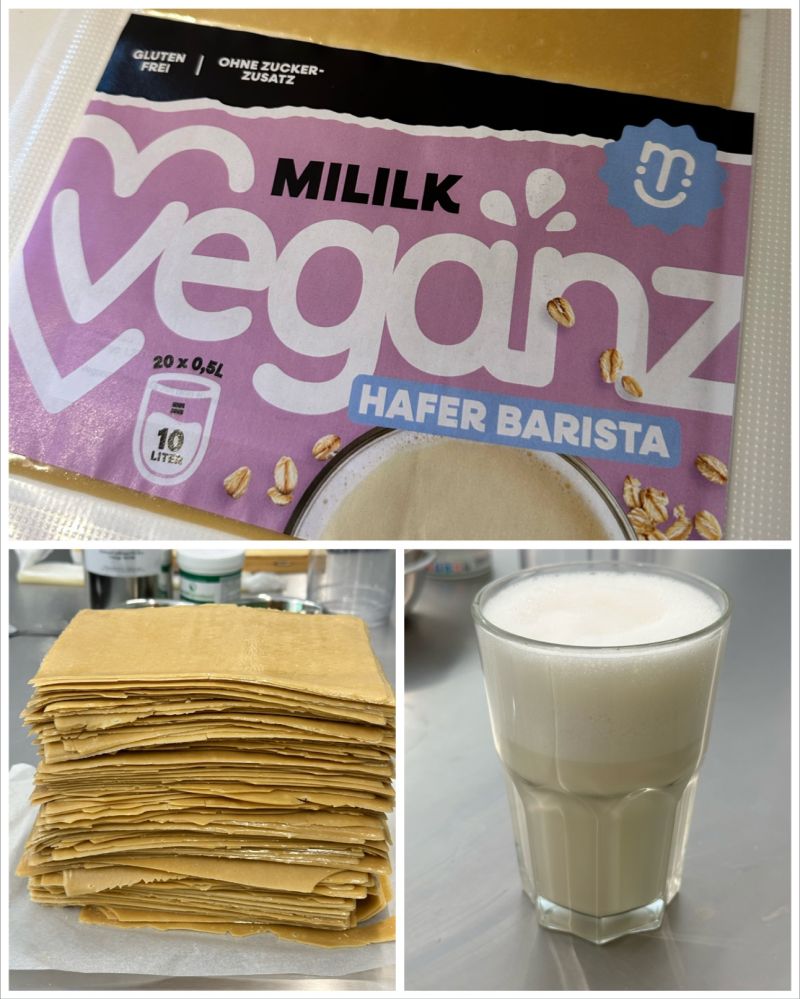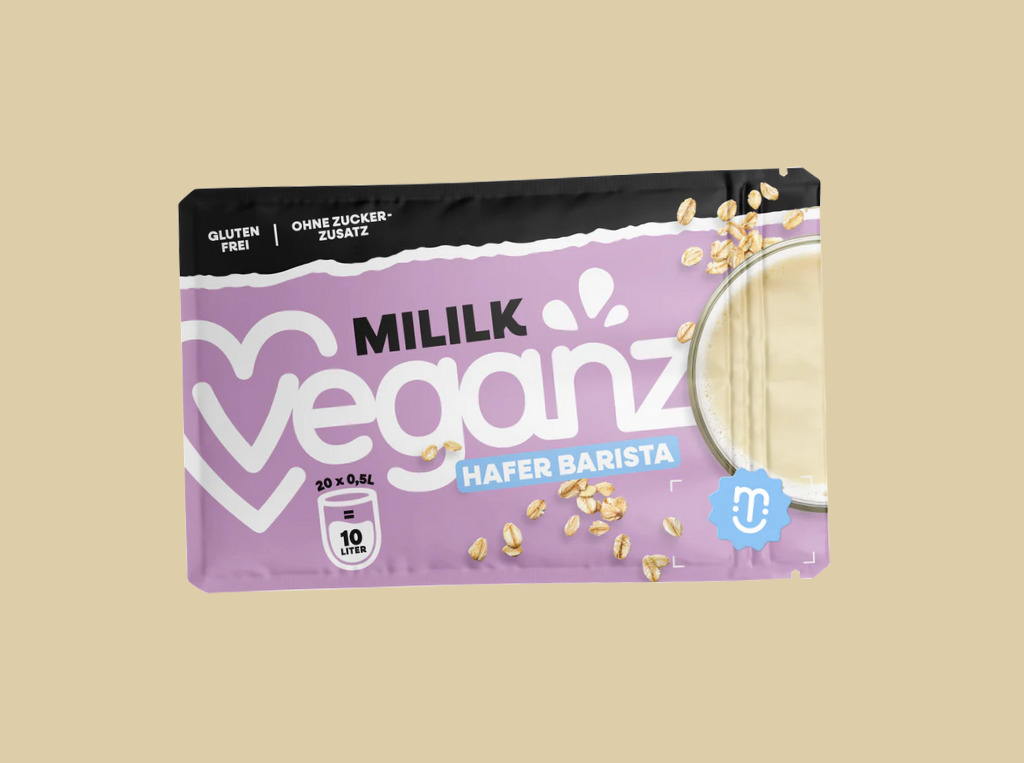Mililk’s 2D-Printed Oat Milk: A Gamechanger for Carbon Emissions and Water Waste?
3 Mins Read
Months after patenting its technology, German food brand Veganz is gearing up to release Mililk, a line of 2D-printed oat milk sheets, tapping into three key areas for consumers and product developers alike: waste, water scarcity and carbon emissions.
The caramel-hued, barista-friendly oat milk sheets are A4-sized and letterbox-friendly. Each leaf can make 500ml of oat milk, with the €17.99 pack containing enough to make 10 litres. The consumer can tear off as much of the sheet as needed, and blend it with water for 30 seconds to make fresh oat milk. The sheets contain oat powder, a small amount of water, coconut oil, chickpea isolate, vanillin and gellan gum – all of which combine to produce a creamy, coffee-friendly milk. (Veganz is also developing coffee creamer pads.)
Similar to other powdered oat milks like Mighty, Overherd and Blue Farm, Veganz’s latest offering is built to have a low ecological footprint. Sustainability is a major factor affecting consumers’ buying decisions: a 2023 survey by Kearney found that 42% of respondents considered environmental impacts when making a food purchase.
Mililk’s three-pronged benefits
By removing most of the water involved in making oat milk (conventional varieties contain about 90% of water on average), Mililk drastically reduces the materials needed for its packaging by 90%, as well as its weight (82% less volume). This, in turn, massively cuts its transport emissions.
With the water crisis raging – 26% of the global population does not have access to safe drinking water – passing the water usage to the consumer is a smart tactic. People at home can customise exactly how much milk – and thus water to make it – they need at a given time, which cuts down on any waste. This is also a major aspect influencing purchasing decisions, as roughly a third of all food goes to waste globally.

Apart from sustainability, this innovation also taps into a major post-pandemic consumer need: convenience. The packaging comprises just an envelope that can be recycled, as opposed to scores of Tetra Paks (which most plant-based milks are packed in) or cardboard boxes (when buying an equivalent amount of milk) that need to be discarded. (Crucially, only 26% of Tetra Pak cartons are recycled globally.)
Economic equity in product design
The plug-and-play aspect of products like Mililk is a big plus-point too, especially for solo consumers who don’t go through an entire litre of milk in five days. You do require a blender for the oat milk sheets, which raises a question about the accessibility of Mililk’s offering. Not everyone has a blender or food processor – whether that’s due to affordability or living in places that don’t have enough counter space – so would they be able to use this product as directed? This includes students, which would be a key demographic for Veganzz, considering Gen Z is consuming less dairy than any other age demographic, and more plant-based milk than ever before.
From Robijn‘s laundry detergent sheets to Mono‘s dissolvable skincare pastilles, waterless product development has been a key driver in the beauty and household landscape for some time now, but it’s a relative novelty in the food and beverage sector. But with innovations like Mililk’s oat milk sheets, the tide may finally be turning.



